
UK is in a mess

Koon Yew Yin
Publish date: Thu, 25 Aug 2022, 09:56 AM
Boris Johnson was forced to resign on 7 July. In these tumultuous times, running the Conservative Party is as hard as running the country. On September 5th Britain will get its fourth prime minister in six years. Rishi Sunak or Liz Truss will be handed the keys to 10 Downing Street by the grace of roughly 160,000 Tory party members as everyone else looks on. Whoever wins—and just now it seems likely to be Ms Truss—will inherit a country that is in a mess and a party that forced out its three previous leaders while they were still in office. It is not a record that breeds confidence.
Who will be the next Prime Minister for UK is still not decided yet. But the Government has to deal with the Port of Felixstowe workers strike, the Royal Mail workers strike and the Railway workers strike.
Port of Felixstowe strike
Workers at the United Kingdom’s largest container port have begun what they say will be an eight-day strike, becoming the latest workers in the country to take action to demand higher pay amid rising inflation and the soaring cost of living.
Nearly 2,000 workers at the Port of Felixstowe, which handles about four million containers a year from 2,000 ships accounting for more than half of the country’s incoming shipping freight, walked off the job on Sunday.
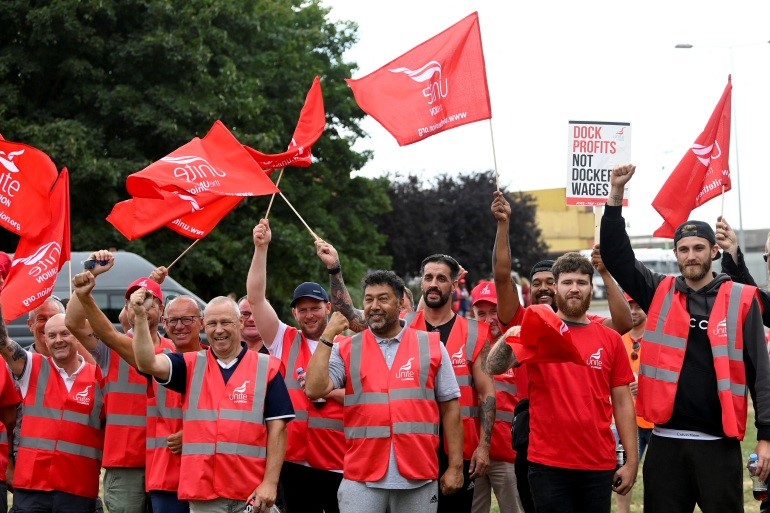
Royal Mail workers strike
Royal Mail workers will go on strike on four days in August and September in a dispute over pay. The action is organised by the Communication Workers Union (CWU), and involves roughly 115,000 employees.
Royal Mail has said the union had rejected a pay rise offer “worth up to 5.5 per cent” after three months of talks.
Railway workers strike
This year has seen a number of strikes on UK railways. Last week around 40,000 workers walked out on Thursday and Saturday in a dispute over pay, pensions and working conditions.
And more strikes could be on the way next month with Mick Lynch, the general secretary of the National Union of Rail, Maritime and Transport Workers warning that action could be “prolonged indefinitely”.
UK inflation highest in 30 years:
The ONS has released its latest inflation data up to February 2022. Overall, this is the highest year-on-year inflation level for 30 years, recording 6.2% on the CPI index and 5.5% on the CPIH index. As a comparison, the old RPI measure inflation reached 8.2% up from 7.8% to January 2022.
Water shortage in England as shown below
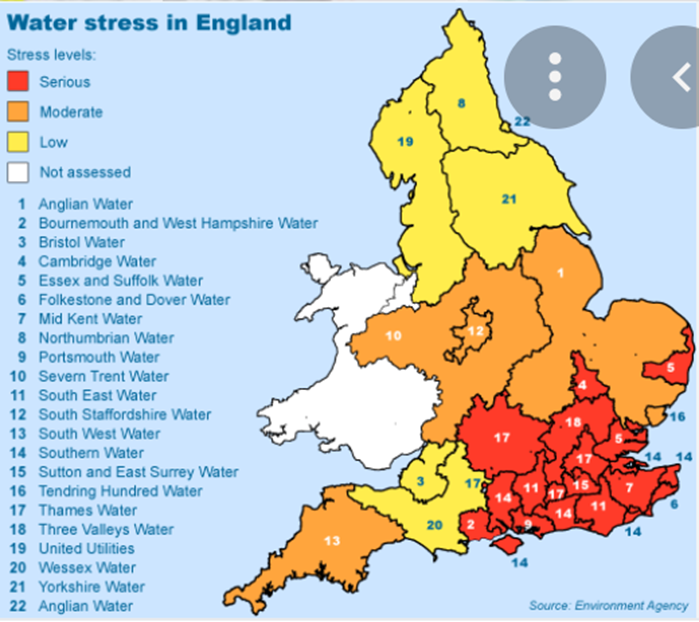
On top of all these workers strikes, highest inflation in 30 years and water shortage, the National Health Service in UK is also failing.
National Health Service:
My cousin who is 10 years younger than I, went to UK for further studies. After graduation, he did not return and became a British citizen. About 15 years ago, his wife was diagnosed with breast cancer and had to wait one month to see a cancer specialist for treatment.
More people are now dissatisfied with the NHS than are happy with it. This is true across all ages, income groups, sexes and voters of different political parties. Support for the NHS is now at the lowest level for a quarter of a century.
NHS is just not that good. Compare it with the health systems of 19 similarly well-off countries and it is hard to come to any other conclusion. UK life expectancy is down at 17 out of these 19 comparable nations. Our cancer survival rates are shockingly low. We are the worst for strokes and heart attacks. We are one from bottom for preventing treatable diseases. We are third from bottom for infant mortality. The only thing we top the charts on is helping diabetics avoid amputation. Sadly, despite the great efforts of NHS staff, our health system does not match the success rates of other nations: we come bottom of the league tables four times – more than any other country – and are in the bottom three for eight out of the 16 measures.
Ambulance service in UK
I just Googled “How long do I have to wait for an ambulance in UK?” the answer: the average ambulance response time for category two calls – those for serious conditions – is 40 minutes in England. One in 10 is kept waiting almost an hour and a half.
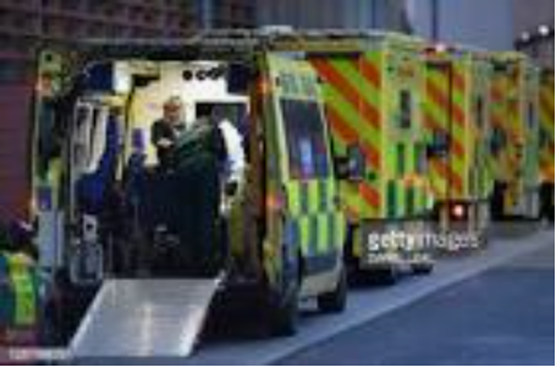
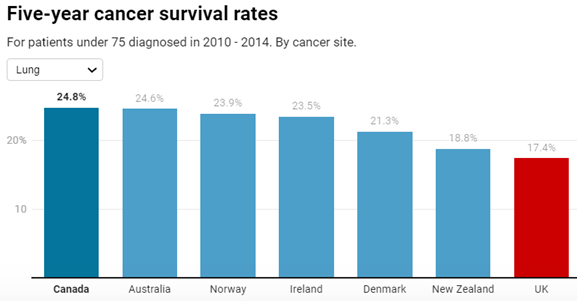
We should start looking at why other countries like the Netherlands, Canada and Japan do so much better than we do. There must be lessons to learn. How, for example, has Japan helped 60 per cent of lung cancer patients survive for five or more years after diagnosis while we only manage 21 per cent? How does Italy have hospital admission rates for respiratory diseases that are one-sixth or ours? How has the Netherlands cut its mortality rates for patients admitted to hospital with an ischemic stroke by 60 per cent over the last decade while we have only managed a reduction of 25 per cent.
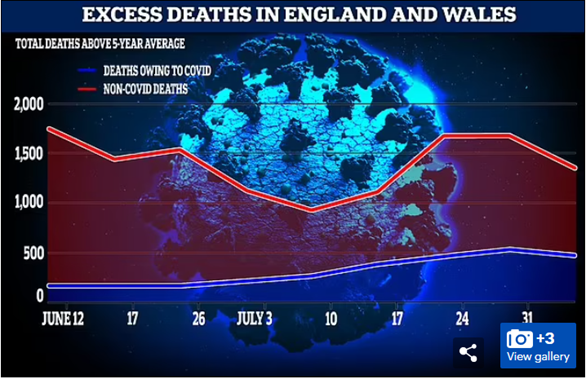
Tens of thousands of people die unnecessarily early every year. Fears rise over silent health crisis as Office for National Statistic ONS records nearly 10,000 more deaths than the five-year average - none of which are linked to the virus - in the last two months.
Office for National Statistics found over 1,000 more people are dying than usual
This makes the rate for excess deaths 14.4 per cent higher than five-year average. Last week figures showed over 20,000 facing 12+ hour wait in emergency care.
Public health care service in Malaysia
Although Malaysia is known to be a very corrupted nation, I must say that our public health care system is among the best in the world. We only pay Rm 5 to see a doctor in any Government general hospital. If you are required to see a specialist, you pay another Rm 5.
My friend’s mother was diagnosed with cancer. She visited the Government cancer hospital for more than 10 times since December last year for treatments and the total cost is less than Rm 5,000.
No comments:
Post a Comment